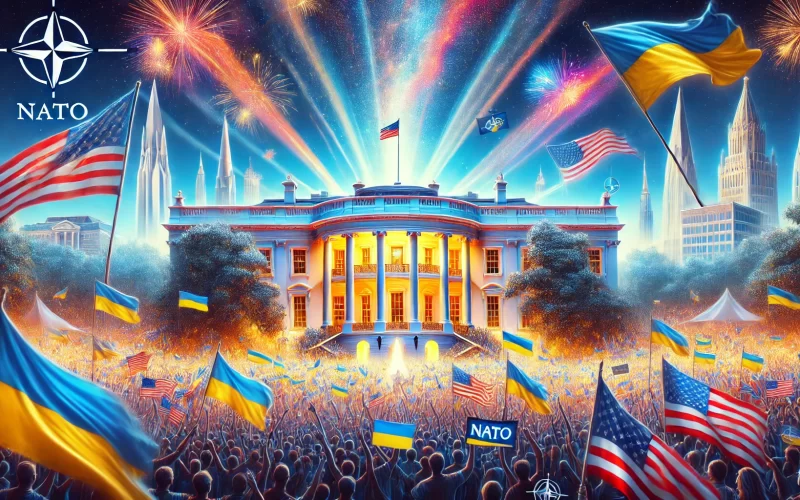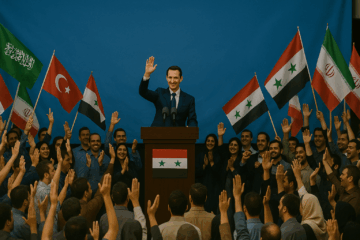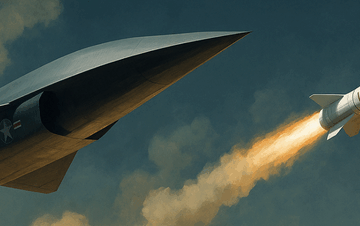The incoming Trump administration will pick up the Ukraine dossier where the outgoing administration left it. As American leadership moves away from election rhetorics and back to the reality of governing, President Trump will attempt to bring the war in Ukraine to a negotiated resolution, but what that might look like is uncertain.
The incoming administration may prefer a blend of hard power and transactional diplomacy. An exit strategy for Ukraine and Russia is for both to come across as winners through conflict resolution.
A Russian maximalist position would require Ukraine to lose on all fronts. This means no return of territory; no European Union (EU) or North Atlantic Treaty Organization (NATO) membership. In theory, Russia needs to be incentivized to either give back the territories, and/or allow Ukraine to join NATO and the EU. The latter, however, is the least likely since it was Western encroachment on Russian borders and Ukrainian efforts to join Western organizations that served as Russian justification for their aggression.
In reality, Russia will never return Crimea to Ukraine. Crimean history, for Russia, is a bloody struggle against the Ottomans, making Crimea important to Russian pride.
The normal EU or NATO accession process takes years or decades. Expediting Ukraine’s accession to either will only reinforce Russian fears that the West is attempting to encircle Russia.
Ukraine’s reconstruction represents a serious economic challenge for the West. The United Nations currently estimates the cost of reconstruction at $486 billion. Who will pay for that reconstruction may play a large role in any negotiations.
Previous public statements by Western officials calling for the expedited membership of Ukraine in NATO only provokes Russian recalcitrance, which will be a challenge for Donald Trump to overcome. With Finland and Sweden now part of NATO, the Baltic Sea is a NATO lake that is closed to Russian naval assets. Ukraine in NATO will threaten Russia’s warm-water ports.
Ukraine in NATO is a non-starter for Russia. Keeping Crimea is an important part of ensuring Russian security. An acceptable compromise will require both sides to walk away unhappy while claiming victory. Ukraine may have to accept the loss of Crimea and the Donbass. It may also require an agreement to forgo joining NATO and, likely, the EU. Russian troops will end their aggression against Ukraine and leave. Western states will likely have the unenviable task of rebuilding Ukraine.
The Biden administration’s decision to allow Ukraine to strike Russia with American weapons is not sustainable in the long run, making it difficult for Ukraine to coerce Russia into a “good deal” in any peace talk. Public opinion in Ukraine supports ending the war short of victory. Ukrainians just want the war to end.
The endgame for Ukraine does not stop at Ukraine’s border. The Trump administration is expected to also play a role in protecting NATO member-states near Russia from further aggression. Appearing too weak empowers Russian aggression, while imposing unrealistic conditions will not end the war.
The exact conditions of any deal are certain to include elements that are not strictly related to the conflict’s settlement. For example, European states may agree to purchase American natural gas instead of Russian natural gas. European NATO member-states may also be required to pay for reconstruction.
A return to the purchase of Russian natural gas, Russia’s biggest export to Europe, may serve as a bargaining chip in negotiations, it is easily conceivable that a Trump administration will want payback for previous American support. This may include a much larger position on Europe’s energy and other markets.
Germany, which is heavily dependent on Russian natural gas, will care deeply about such negotiations. Lifting sanctions will be important for Russia and Europe.
The brave new world that is the future of Europe may stand somewhere between a new NATO versus Russia bipolarity and balkanization. Some countries may attempt to play all sides involved. Deterrence may still hold, but European NATO must certainly rearm.
Across NATO, there is an effort already underway to learn the lessons of the Ukraine war. Any endgame must ensure the West is far more effective at making sense of those lessons than are China, Iran, North Korea, and Russia. Developments in cyber, space, drone, and missile warfare are all critical elements of post-war learning.
For the sake of the Ukrainian people, it is time to end this conflict. But it must be done in a way that protects the future of Ukraine while understanding Russian fears. Rightly, Russian President Vladimir Putin deserves the disdain of the free world. Absent the ability to impose a clear victory on Russia, which is a challenge given Russian nuclear arms, a negotiated settlement is the only viable option.
Christophe Bosquillon is a Senior Fellow at the National Institute for Deterrence Studies. He has over 30 years of international experience in general management, foreign direct investment, and private equity and fund management across various industries in Europe and the Pacific Basin. The views expressed in this article are the author’s own.
About the Author

Christophe Bosquillon
Christophe Bosquillon is a Senior Fellow at the National Institute for Deterrence Studies. He has over 30 years of international experience in general management, foreign direct investment, and private equity and fund management across various industries in Europe and the Pacific Basin.






Christophe has penned another excellent article. My own thought on the Ukraine Problem now is that the West is going to have to pay a high price for failing to stop Putin’s aggression that started some years ago when he attacked Georgia and then first attacked Ukraine. (Remember the Little Green Men?) POTUS Obama et al ignored the early warning signs of impending aggression by Moscow and then, once the invasions unfolded, responded with anemic sanctions easily evaded. We gave a gimme to Moscow back then and it is sadly just too late to do a do-over now. That would be nonsense, anywhere outside a children’s schoolyard, in the best of circumstances; rendering the geopolitical situation much more intractable is that Russia has highly-usable tactical nuclear supremacy. The entire realpolitik balance sheet is, today, heavily imbalanced toward Russia. President Trump’s team has their work cut out for them.